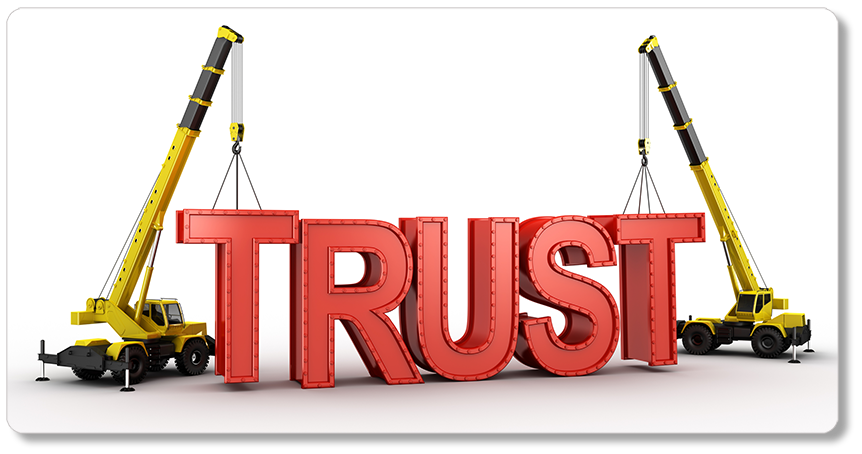 Trust is a powerful thing. It serves as a foundation for organizational success. It builds bridges between people of different persuasions, allowing them to move forward together in a common direction. I suppose our politicians, and our country as a whole, could benefit from a higher level of genuine trust… ya think?
Trust is a powerful thing. It serves as a foundation for organizational success. It builds bridges between people of different persuasions, allowing them to move forward together in a common direction. I suppose our politicians, and our country as a whole, could benefit from a higher level of genuine trust… ya think?
In Keller Schroeder’s most recent, internal survey (we collect feedback anonymously about every three years), responses from our employee-owners were 95% favorable to the statement, “Management delivers on its promises”, and 96% favorable to, “Management’s actions match its words”. Lest we too quickly conclude that trust is all about management, our staff also responded 99% favorably to both of the following statements: “People care about each other here”, and “People avoid politicking and backstabbing as a way to get things done”.
While all of us at Keller Schroeder are humbled and blessed to work in such a positive, high-trust culture, we never endeavored specifically to build one. No one ever said, “You know, we really need to increase trust here!” So how does trust happen, and what contributes most to trust in the marketplace?
Avoidance of any major violations of trust is certainly important. Keller Schroeder consists of about 85 high-integrity individuals who are trustworthy and honest. But I would suggest that trust is more than a moral issue. Of all the bosses in my career, the one I respected and trusted the least was, by most standards, a trustworthy person with high moral standards. I trusted his morals, but I doubted his intentions. Conversely, the people who have influenced me most have been ones in whom I could place complete trust. These mentors, peers and bosses each had two things in common: (1) all their cards were on the table – I knew their intentions – and (2) they had a genuine interest in me and in others, ahead of themselves.
These may sound like very different attributes – clear intentions and other-centered interests – but upon closer examination I believe they are very much related. It is difficult to have all your cards on the table – to be completely open and honest about your intentions – when those intentions are primarily self-indulgent. And, when you are genuinely interested in what is best for those around you, it is not difficult at all to be candid and transparent about your thoughts and plans.
We all know people who we absolutely do not trust, based on obvious reasons or personal history, but the overwhelming majority of those we interact with have the basic moral fiber to be trusted. The development of a high-trust culture for your organization depends on your intentions and your interests. If it is first about you, trust will be compromised. If the well-being of your colleagues ranks high among your priorities, trust will grow. This is a leadership principle which may start at the top, but we all have the opportunity to influence how our organization’s culture evolves.
So before we too quickly point upward or outward as it pertains to trust and culture, let’s look inward. No organization can build trust. Only individual members of an organization, on an encounter-by-encounter basis, can demonstrate the authentic interest in others necessary to build a healthy culture.
Larry May – [President]




